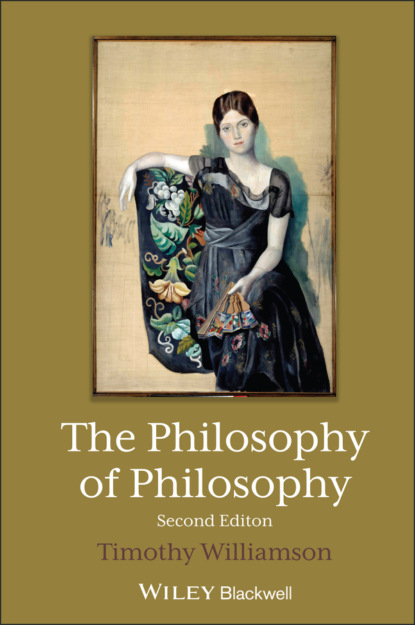The Philosophy of Williamson is a work by the renowned philosopher Timothy Williamson that presents his perspective on the nature of philosphy. The book is divided into two parts: "On the Method of Philosophy" and "On Philosophical Intuitions."
In the first part, Williamson lays out his conception of philosophizing as "non-natural," attempting to detach philosophy from its naturalist roots. He denounces the standard narratives of contemporary philosophy and argues for the need to develop novel methodological principles. He writes:
> "Yes, philosophy must be science - but it's not science. It's like science for students who are desperate not to have their brains depleted. Science is experimentation, observation, verification. Philosophy is listening - which is not obvious that it is such."
Williamson extends the scope of philosophy beyond just aesthetics as much as possible. He challenges assumptions such as the existence of a "world out there" that is independent of human perception, that reality is automatically given as it is, or even that the truth is knowable.
He also examines how philosophy differs from other sciences:
>"A key lesson I've learned from my study of philosophy over the years has been that, although philosophy seems like a universal activity, it’s also unlike other kinds of science. For all the things we do in philosophy and for all the time we spend doing it, it nevertheless proves impossible to reach a consensus as to what questions we think philosophize, what constitutes a fact, and so on – although when engaged in a philosophical discussion, we seem much less aware of them." >A great philosophy happens when a philosopher is questioning everything yet it seems to him that there is nothing in question anymore: this is exactly the type of intellectual challenge you are going to get from reading Williamson's fine text." The second part of the book addresses theoretical issues and methodological problems that arise in making meaningful assertions about our world. Williamson explores ways to make precise philosophical positions, yet ultimately finds that most of our beliefs about the world are unprovable in light of empirical observation.
One important takeaway from the book is that philosophy cannot avoid meta-metaphysical questions about reality, and that any attempt to circumvent this problem ultimately leads to sophistry. Ultimately, the aim of philosophy should be to wrestle with the question of meaning, whether it be the underlying preoccupation of thought, the necessity of existing, the stability of values.
Also interesting is Williamson's decision to address his philosophical commitments specifically in every section of the text. In this way, the author gives readers new avenues of engagement and a sense of certainty about his claims. Critics can find fault in his individual conclusions and strategies for engaging empirical experience, but the coherence and purpose of his project emerges in the interplay between his contributions.
#афоризмы и цитаты
